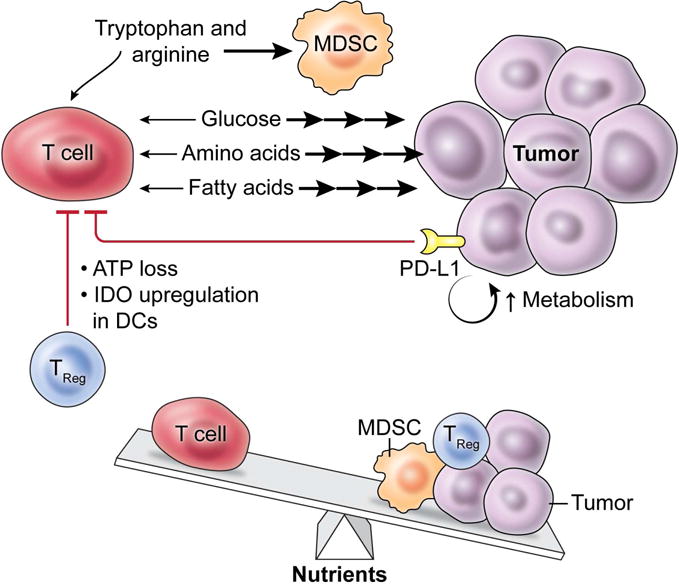Figure 5. The tumor microenvironment fosters a struggle for T cells to acquire key nutrients.

At the tumor site, several factors act in opposition to anti-tumor T cells acquiring sufficient nutrients to support immune function. Tumor cells are known to take up large amounts of key nutrients that are required for optimal T cell activity, including glucose, amino acids and fatty acids. Tumor expression of the inhibitory PD-L1 molecule acts to both directly inhibit T cell metabolism and to further promote the metabolic activity of the tumor. Anti-tumor T cells must also manage the impact of tumor-localized suppressive cell subsets such as MDSCs and Treg, which can act to deplete key nutrients such as arginine and tryptophan. Taken together, anti-tumor T cells must face and overcome a challenging metabolic microenvironment in order to successfully mount an immune response against tumors.
